2018 Speakers
Plenary Speakers
- Dr. William Chappell, Director, DARPA Microsystems Technology Office
- Dr. Paolo Faraboschi, Vice President and Fellow, HPE
Government Panel Speakers
- Dr. William Chappell, Director, DARPA Microsystems Technology Office
- Dr. Hans S. Cho, Naval Research Laboratory (NRL), Washington DC
- Dr. Lynne Parker, Assistant Director, Artificial Intelligence (AI) at the White House Office of Science and Technology Policy (OSTP)
- Dr. William Vanderlinde, Acting Director of the Advanced Computing Technologies Division in Advanced Scientific Computing Research (ASCR), Department of Energy
- Dr. Carl Williams, Acting Director, Physical Measurement Laboratory, NIST
Invited Speaker
- Dr. Michael Frank, Senior Engineering Scientist, Sandia National Laboratories
Dr. William Chappell, Director, DARPA Microsystems Technology Office
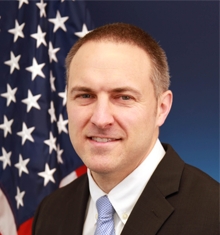 Dr. Chappell is leading the new Electronics Research Initiative (ERI), which aims to ensure far-reaching improvements in electronics performance well beyond the limits of traditional scaling. The ERI plans to forge forward-looking collaborations among the commercial electronics community, defense industrial base, university researchers, and the DoD. Before joining DARPA, Dr. Chappell served as a professor in the ECE Department of Purdue University, where he led the Integrated Design of Electromagnetically-Applied Systems (IDEAS) Laboratory. Dr. Chappell received his BS, MS, and PhD degrees in Electrical Engineering, all from the University of Michigan.
Dr. Chappell is leading the new Electronics Research Initiative (ERI), which aims to ensure far-reaching improvements in electronics performance well beyond the limits of traditional scaling. The ERI plans to forge forward-looking collaborations among the commercial electronics community, defense industrial base, university researchers, and the DoD. Before joining DARPA, Dr. Chappell served as a professor in the ECE Department of Purdue University, where he led the Integrated Design of Electromagnetically-Applied Systems (IDEAS) Laboratory. Dr. Chappell received his BS, MS, and PhD degrees in Electrical Engineering, all from the University of Michigan.
Talk: The upcoming era of specialization and the research needed to make it work for our country
Abstract: Since the initial paper describing the future of integrated circuits by Gordon moore, there has been unprecedented growth of the electronics industry. The past 53 years have been good for both the economics and security of our country. However we find ourself in a “complexity bind” that makes this a very unique moment in time for the broader electronics community. A mix of changing underlying physics, foreign investment, and growing cyber concerns challenges the industry and the research community. Darpa has kicked off the electronics resurgence initiative, or ERI, in response. The talk will review the status of the US semiconductor market, and the opportunities that exist that allow the US to lead in this next era.
Dr. Paolo Faraboschi, Vice President and Fellow, HPE
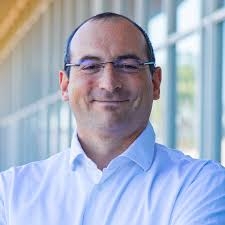 Dr. Faraboschi is currently leading HPE’s exascale computing research, with interests at the intersection of system architecture and software. He was previously the lead of The Machine hardware architecture, researching memory-driven computing for big data. He is an IEEE Fellow for “contributions to embedded processor architecture and system-on-chip technology”, an active member of the computer architecture community, author of 30 patents, over 100 publications, and the book “Embedded Computing: a VLIW approach”. Before joining HP in 1994, he received a Ph.D. in EECS from the University of Genoa, Italy.
Dr. Faraboschi is currently leading HPE’s exascale computing research, with interests at the intersection of system architecture and software. He was previously the lead of The Machine hardware architecture, researching memory-driven computing for big data. He is an IEEE Fellow for “contributions to embedded processor architecture and system-on-chip technology”, an active member of the computer architecture community, author of 30 patents, over 100 publications, and the book “Embedded Computing: a VLIW approach”. Before joining HP in 1994, he received a Ph.D. in EECS from the University of Genoa, Italy.
Dr. Hans S. Cho, Naval Research Laboratory (NRL), Washington DC
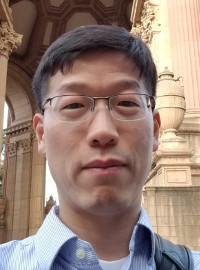 Dr. Hans Cho joined the Naval Research Lab (NRL) in 2016 as a Materials Research Staff Scientist. Prior to joining NRL, he has worked mainly in corporate research: developing techniques for growing single-crystal regimes in semiconductor thin films on insulator at the Samsung Advanced Institute of Technology (SAIT) (2003-2006), and novel nanofabrication including CVD growth of Si and Ge nanostructures at HP(E) Labs (2007-2016). In 2010 he joined HP‘s effort to commercialize memristors for memory technology, spending ~2 years (2010-2012) in Korea as the tech transfer liaison to Hynix Semiconductor (now SK Hynix) and 6 months working in the same capacity with SanDisk (Western Digital). He is currently heading an effort at NRL to develop neuromorphic hardware elements based on memristors. He received a BS in Physics at the Massachusetts Institute of Technology in 1995, and an MS and DES in Applied Physics and Mathematics from Columbia University in 2003.
Dr. Hans Cho joined the Naval Research Lab (NRL) in 2016 as a Materials Research Staff Scientist. Prior to joining NRL, he has worked mainly in corporate research: developing techniques for growing single-crystal regimes in semiconductor thin films on insulator at the Samsung Advanced Institute of Technology (SAIT) (2003-2006), and novel nanofabrication including CVD growth of Si and Ge nanostructures at HP(E) Labs (2007-2016). In 2010 he joined HP‘s effort to commercialize memristors for memory technology, spending ~2 years (2010-2012) in Korea as the tech transfer liaison to Hynix Semiconductor (now SK Hynix) and 6 months working in the same capacity with SanDisk (Western Digital). He is currently heading an effort at NRL to develop neuromorphic hardware elements based on memristors. He received a BS in Physics at the Massachusetts Institute of Technology in 1995, and an MS and DES in Applied Physics and Mathematics from Columbia University in 2003.
Dr. Lynne Parker, Assistant Director, Artificial Intelligence (AI) at the White House Office of Science and Technology Policy (OSTP)
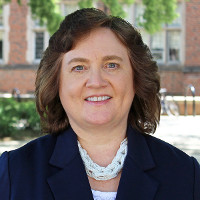 Dr. Parker is Assistant Director for Artificial Intelligence (AI) at the White House Office of Science and Technology Policy (OSTP). In this role, she is the White House lead for AI policy, and engages with numerous stakeholders to accelerate advances in AI for economic growth, improved quality of life, and national and economic security. Prior to joining OSTP, she was Interim Dean of the Tickle College of Engineering at the University of Tennessee, Knoxville (UTK), and Professor in UTK’s Electrical Engineering and Computer Science Department. She previously served as National Science Foundation’s Division Director for Information and Intelligent Systems, and was a co-chair of the U.S. government task force on AI that produced the 2016 “National Artificial Intelligence R&D Strategic Plan”. Prior to joining UTK, she worked as a Distinguished R&D Staff Member at Oak Ridge National Laboratory. She received her PhD in computer science from MIT, and is an IEEE Fellow.
Dr. Parker is Assistant Director for Artificial Intelligence (AI) at the White House Office of Science and Technology Policy (OSTP). In this role, she is the White House lead for AI policy, and engages with numerous stakeholders to accelerate advances in AI for economic growth, improved quality of life, and national and economic security. Prior to joining OSTP, she was Interim Dean of the Tickle College of Engineering at the University of Tennessee, Knoxville (UTK), and Professor in UTK’s Electrical Engineering and Computer Science Department. She previously served as National Science Foundation’s Division Director for Information and Intelligent Systems, and was a co-chair of the U.S. government task force on AI that produced the 2016 “National Artificial Intelligence R&D Strategic Plan”. Prior to joining UTK, she worked as a Distinguished R&D Staff Member at Oak Ridge National Laboratory. She received her PhD in computer science from MIT, and is an IEEE Fellow.
Dr. William Vanderlinde, Acting Director of the Advanced Computing Technologies Division in Advanced Scientific Computing Research (ASCR), Department of Energy
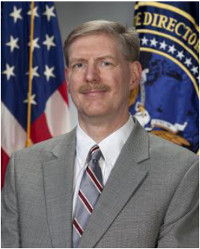 Dr. William Vanderlinde joined the Department of Energy, Office of Science, in October 2018 as acting Director of the Advanced Computing Technologies Division in Advanced Scientific Computing Research (ASCR). He previously worked at the Intelligence Advanced Research Projects Activity (IARPA) where he served as a Program Manager, Office Director, Chief Scientist, and acting Deputy Director. Other positions have included Technical Director of the DOD Microelectronics Research Laboratory and Team Leader for Nanotechnology at the Laboratory for Physical Sciences. Dr. Vanderlinde’s work has focused on microelectronics and advanced microscopy, with applications to supply-chain assurance and high-performance computing. He holds a Ph.D. in materials science and engineering from Cornell University, an M.S. in electrical engineering from Johns Hopkins University and a B.S. in physics from the University of Virginia. He is a DNI Fellow and an elected Fellow of ASM International.
Dr. William Vanderlinde joined the Department of Energy, Office of Science, in October 2018 as acting Director of the Advanced Computing Technologies Division in Advanced Scientific Computing Research (ASCR). He previously worked at the Intelligence Advanced Research Projects Activity (IARPA) where he served as a Program Manager, Office Director, Chief Scientist, and acting Deputy Director. Other positions have included Technical Director of the DOD Microelectronics Research Laboratory and Team Leader for Nanotechnology at the Laboratory for Physical Sciences. Dr. Vanderlinde’s work has focused on microelectronics and advanced microscopy, with applications to supply-chain assurance and high-performance computing. He holds a Ph.D. in materials science and engineering from Cornell University, an M.S. in electrical engineering from Johns Hopkins University and a B.S. in physics from the University of Virginia. He is a DNI Fellow and an elected Fellow of ASM International.
Dr. Carl Williams, Acting Director, Physical Measurement Laboratory, NIST
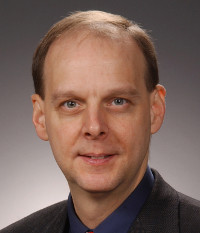 Carl Williams (https://www.nist.gov/people/carl-j-williams) is the Acting Director of the Physical Measurement Laboratory, National Institute of Standards and Technology. He is a Fellow of the Joint Quantum Institute (http://jqi.umd.edu), the Joint Center for Quantum Information in Computer Science (http://quics.umd.edu), and Adjunct Professor of Physics at the University of Maryland. He co-chairs the Subcommittee on Quantum Information Science under the Committee of Science of the National Science and Technology Council. He engages with professional societies, international organizations, academia, and industry to develop policy solutions that advances measurement science, basic research, standards, and technology development crucial to the economic and national security of the United States. He has authored over 120 scientific publications and has been a speaker at numerous national and international conferences. He is a Fellow of the American Association of the Advancement of Science, the American Physical Society, and the Washington Academy of Science.
Carl Williams (https://www.nist.gov/people/carl-j-williams) is the Acting Director of the Physical Measurement Laboratory, National Institute of Standards and Technology. He is a Fellow of the Joint Quantum Institute (http://jqi.umd.edu), the Joint Center for Quantum Information in Computer Science (http://quics.umd.edu), and Adjunct Professor of Physics at the University of Maryland. He co-chairs the Subcommittee on Quantum Information Science under the Committee of Science of the National Science and Technology Council. He engages with professional societies, international organizations, academia, and industry to develop policy solutions that advances measurement science, basic research, standards, and technology development crucial to the economic and national security of the United States. He has authored over 120 scientific publications and has been a speaker at numerous national and international conferences. He is a Fellow of the American Association of the Advancement of Science, the American Physical Society, and the Washington Academy of Science.
Dr. Michael Frank, Senior Engineering Scientist, Sandia National Laboratories
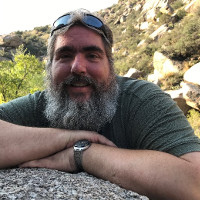 Dr. Frank has been studying the fundamental physical limits of computing, and the new computing paradigms that will be required for saturating those limits, for more than 20 years. Before joining Sandia’s Center for Computing Research, Dr. Frank held faculty positions in affiliation with the CISE and ECE departments at the University of Florida and the ECE department at Florida State University, and engineered astroparticle detectors as a research associate at Florida A&M. Dr. Frank received his MS and PhD degrees in Electrical Engineering and Computer Science from MIT, and his BS in Symbolic Systems from Stanford University.
Dr. Frank has been studying the fundamental physical limits of computing, and the new computing paradigms that will be required for saturating those limits, for more than 20 years. Before joining Sandia’s Center for Computing Research, Dr. Frank held faculty positions in affiliation with the CISE and ECE departments at the University of Florida and the ECE department at Florida State University, and engineered astroparticle detectors as a research associate at Florida A&M. Dr. Frank received his MS and PhD degrees in Electrical Engineering and Computer Science from MIT, and his BS in Symbolic Systems from Stanford University.
Talk: “Reversible Computing as a Path towards Unbounded Energy Efficiency: Challenges and Opportunities”
